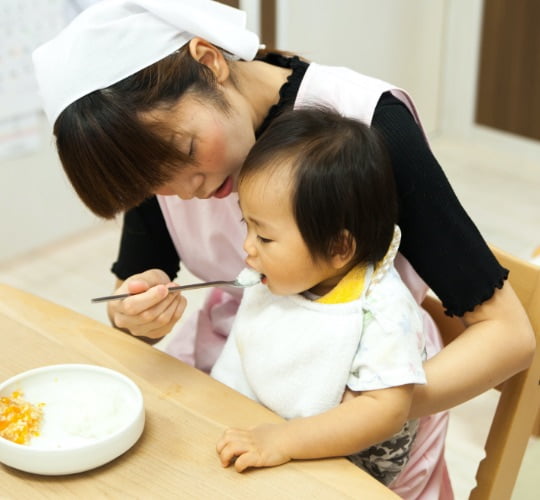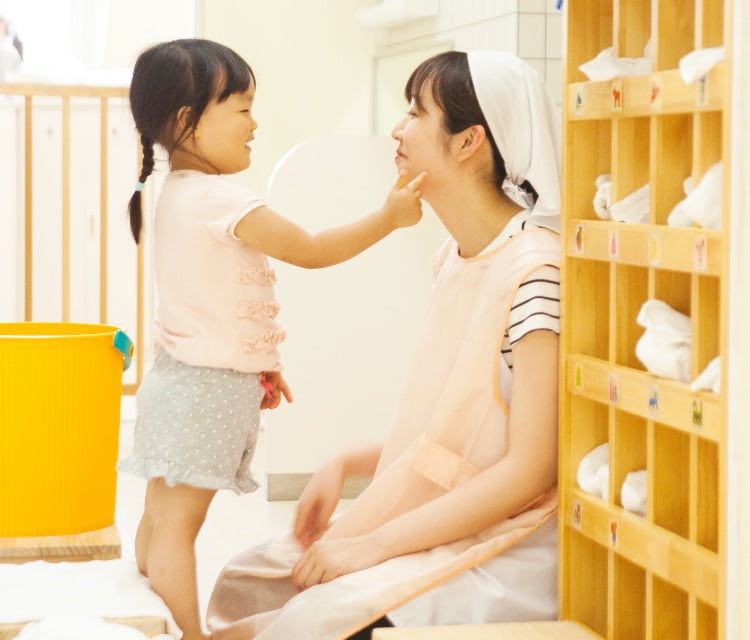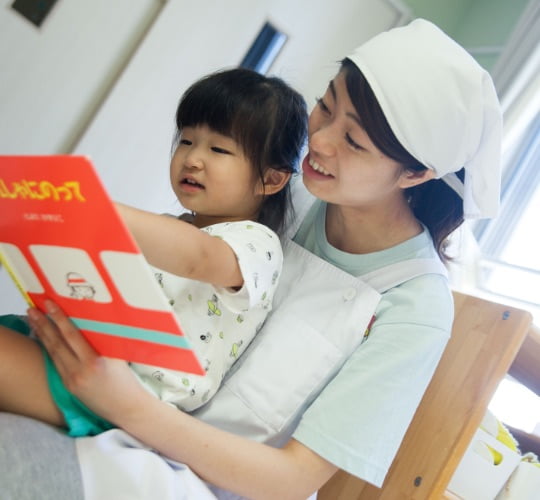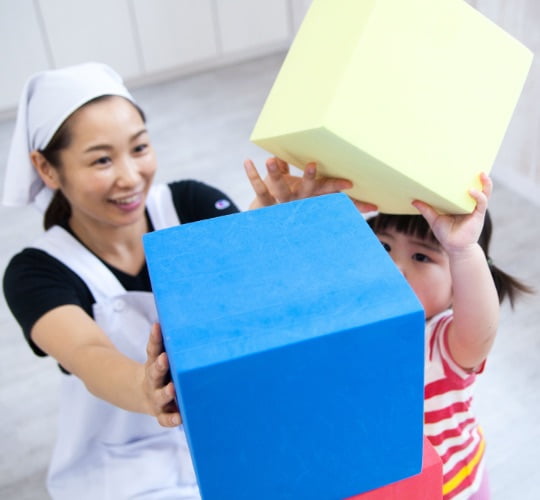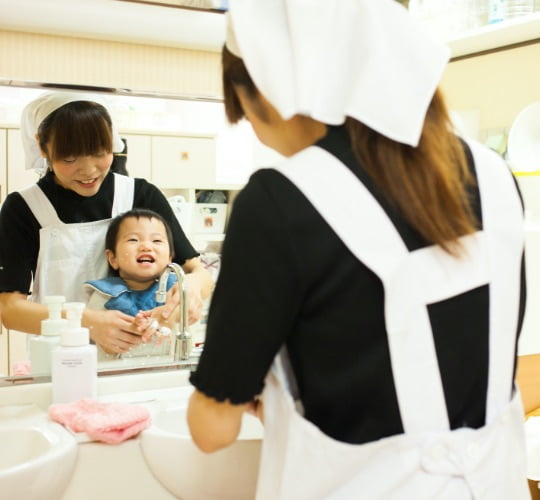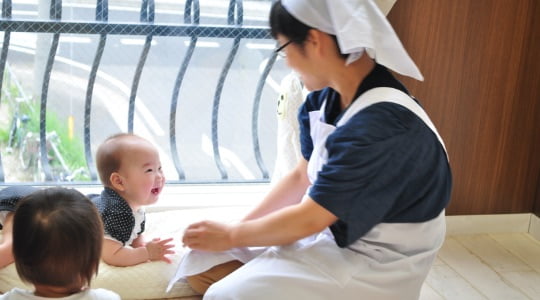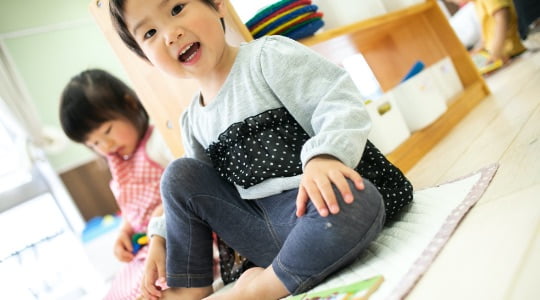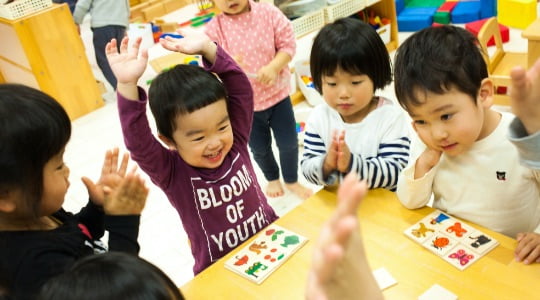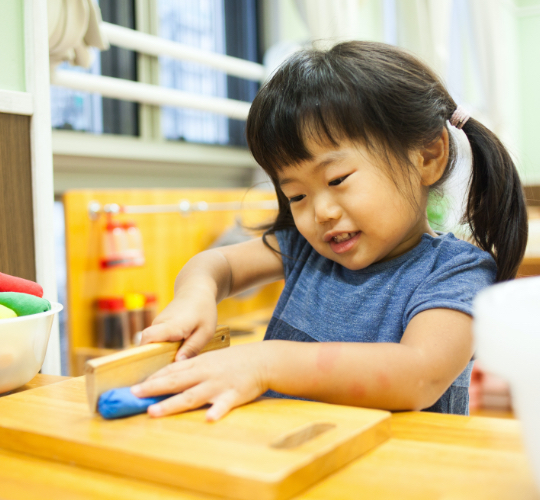Here at Shinaikai we integrate 'Tantosei': Designated Caregiver System.
Many people may wonder, “What is 'Tantosei': Designated Caregiver System exactly?” Up until recently, most preschools and kindergartens in Japan offered only ‘Group Classes’, where all children would perform the same actions (going for walks, eating, napping, etc.,) at the same time while watched by 1 or a few teachers.
It’s been stated in the Ministry of Health, Labor, and Welfare’s recent nursery school childcare guidelines that the introduction of 'Tantosei': Designated Caregiver System is beneficial. The 'Tantosei': Designated Caregiver System system comes from an avant-garde theory first established in Hungary, and is currently being used throughout Europe in countries such as: Denmark, Finland, The Netherlands, and Germany.
In the 'Tantosei': Designated Caregiver System system, each caregiver is matched with designated children. This system of care doesn’t mean that each caregiver ignores children outside of their designated children, but that the entire class works together, children and adults, to create a natural atmosphere during daily routines.
